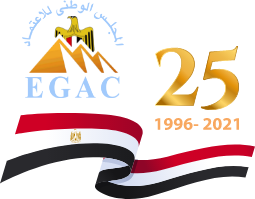EGAC the first accreditation body in Arab world and the Middle East Also, the second AB in Africa to begin provided accreditation of forensic service providers, offering accreditation of forensic testing and inspection services to standards ISO/IEC 17025, ISO/IEC 17020, and ILAC G19.
Forensic testing and/or inspection services can be provided by:
- Crime laboratories for Ministry of the Interior
- Environmental testing laboratories
- Law enforcement agencies
- Animal drug testing laboratories
- Forensic Medical examiner Justice Ministry
- Academic organizations
EGAC accreditation program aims to be effective, efficient, and transparent in delivering our services. We are impartial in decision making and regularly monitor our performance, always looking for ways to improve. We treat everyone we deal with fairly and with courtesy and respect. We protect privacy and confidentiality every step of the way.
EGAC Supporting the criminal justice system through the accreditation of testing, examination and scene of crime activity, where is EGAC accreditation determines the technical competence and impartiality of forensic organizations delivering testing and inspection services to the Criminal Justice System.
EGAC accreditation programs consider the conformance, competence, and effectiveness of the overall management system when granting accreditation. where is the accreditation is based on an assessment of forensic service providers agency’s technical qualifications and competence for conducting specific testing, the validity, and suitability of methods, the appropriateness of equipment and facilities, the ongoing assurance through internal quality control and/or inspection activities within the scope of ISO/IEC 17025 or ISO/IEC 17020 and any relevant field-specific standards.
EGAC accreditation of Forensic service providers involves independent, unbiased assessment of the Forensic service provider’s facilities to determine competence, impartiality, and consistent operation. Specialist assessors with relevant experience in Forensic science conduct an assessment of the Forensic service provider’s facility, its management system, processes, facilities, personnel, and other essential elements of its operation to determine if it meets the requirements listed in the standards. Based on information and reports provided by all of assessment teams. Also, a separate decision-making process under the accreditation body determines whether to grant accreditation.
Once a Forensic service provider’s granting accreditation, they are periodically re-evaluated by two assessment visits to ensure that the Forensic service providers are maintaining the necessary competencies and continue to meet the relevant requirements.
Each accreditation cycle includes the initial on-site assessment for accreditation followed by two regular surveillance activities to assess continued compliance with accreditation requirements. All the forensic agencies are truly in compliance with the appropriate ISO standards.

